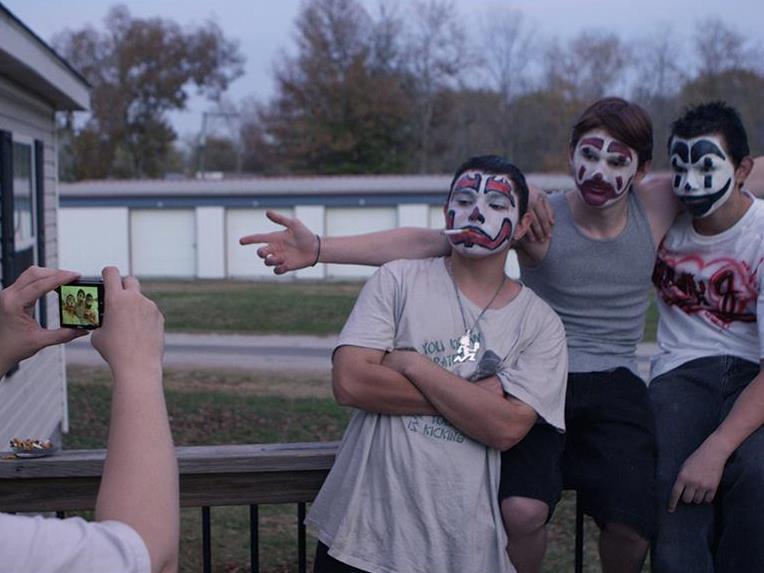Directors Tracy Droz Tragos and Andrew Droz Palermo glide their cameras down silent streets, look up lovingly at adolescents sitting under open skies, and cast their subjects and their surroundings with a warm glow; however the stories these images tell are far from sunny. In Missouri’s Rich Hill, the epitome of struggling small town with a population of 1,393, hope and happiness are seemingly fleeting concepts. The surprise – in the documentary that shares the same name and in the three teenagers that form its focus – is the ability to find of slivers of beauty in the bleakness.
‘We’re not trash, we’re good people,’ 14-year-old Andrew laments as he looks directly down the lens, his words capturing his cognisance of the way others see him, and his confidence that he defies the label commonly ascribed. With 13-year-old Appachey and 15-year-old Harley, he is the heart and soul of a film that ponders not just the perception and reality of the toughest of times on young lives, but those too often treated as a socio-economic class, not as individuals. Poverty is pervasive, options are limited, and their families are afflicted with more than their fair share of burdens, yet the three boys becoming men are more than just underprivileged stereotypes.
Building a better life for his parents and sister is Andrew’s primary concern, albeit one that’s hard to realise as they move from town to town in search of work that never comes. Appachey has a temper and a list of illnesses not uncommon among his peers, but without the proper treatment his behaviour is a test for his single mother. Harley drifts between the homes of family members, his school work suffering and his childhood traumas simmering beneath his façade of apathy. All three are distinctive in their circumstances, universal in representing a generation of marginalised youths in rural communities, and emblematic of the perpetual problem of striving for an American dream that has become increasingly unlikely for many.
The radiance of the first-time feature helmers’ almost wistful visuals aside – and the melodic melancholy of the accompanying score by Nathan Halpern (The Age of Love), too – it is near impossible not to be moved by the plights of the film’s subjects and their soft rallying against circumstances that sees their reach exceeding their grasp. Aiding the affecting impact is the conspiratorial way in which the trio each regard the camera, earnestly confessing their feelings as if talking to a close friend. From a family original hailing from the town themselves, cousins Tragos and Palermo cultivate a tender sense of intimacy amid the three potentially tragic tales that imbues the film with genuine empathy. The work of editor Jim Hession (Marina Abramovic: The Artist Is Present) in crafting an engaging slice-of-life compilation from the hundreds of hours of footage shot cannot be underestimated.
Rich Hill took home the grand jury prize winner for documentary filmmaking at the 2014 Sundance Film Festival, a testament to its keen observation and its quiet emotion, both swelling to sumptuous levels. There’s richness in this resonantly disarming documentary, just not the sort the title and the town might intimate. In seeking more than their lot in life in a heartbreaking illustration of the divide between the haves and have-nots, Rich Hill’s put-upon teens show a wealth of character, if not means.
Rating: 4 out of 5 stars
Rich Hill
Directors: Tracy Droz Tragos and Andrew Droz Palermo
US, 2014, 91 mins
Human Rights Arts and Film Festival
www.hraff.org.au
Melbourne: 8 – 22 May
Sydney: 27 – 31 May
Perth: 3 – 5 June
Brisbane: 3 – 5 June
Darwin: 16 – 17 August
Actors:
Director:
Format:
Country:
Release:





